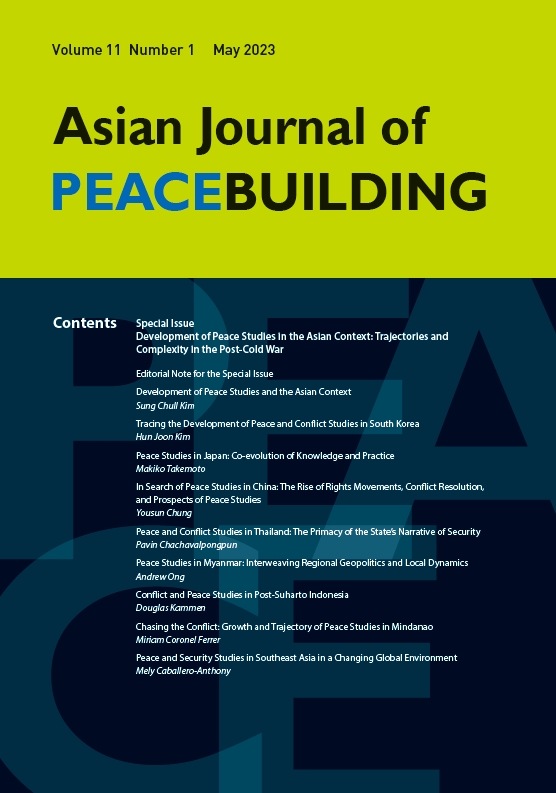This introductory article illustrates the development of peace studies and then reviews the Asian context in it. Peace studies has developed through three approaches state-centered, human-centered, and structure-critical—the origins of which can be traced back to Kantian federalism and republicanism, Tolstoy’s criticism of institutionalized violence, and Marx’s critique of capitalism, respectively. In the post-Cold War era, the theories of security community, human security, and ecosocialism have developed separately. At the same time, the three approaches have competed and merged with one another in the face of increasingly complex global problems, resulting in the birth of “responsibility to protect” (R2P) and differing but simultaneous responses to climate change. Both ASEAN as a multifaceted community and development-based human security characterize the Asian context.
Back Issues
Special Issue_Development of Peace Studies in the Asian Context: Trajectories and Complexity in the Post-Cold War
Development of Peace Studies and the Asian Context
Sung Chull Kim pp. 1-31 doi: 10.18588/202305.00a387
PDF Download

